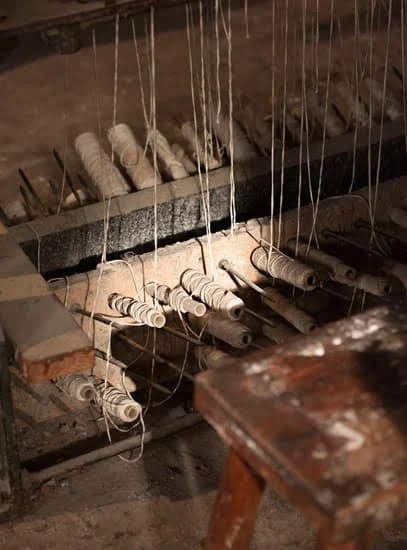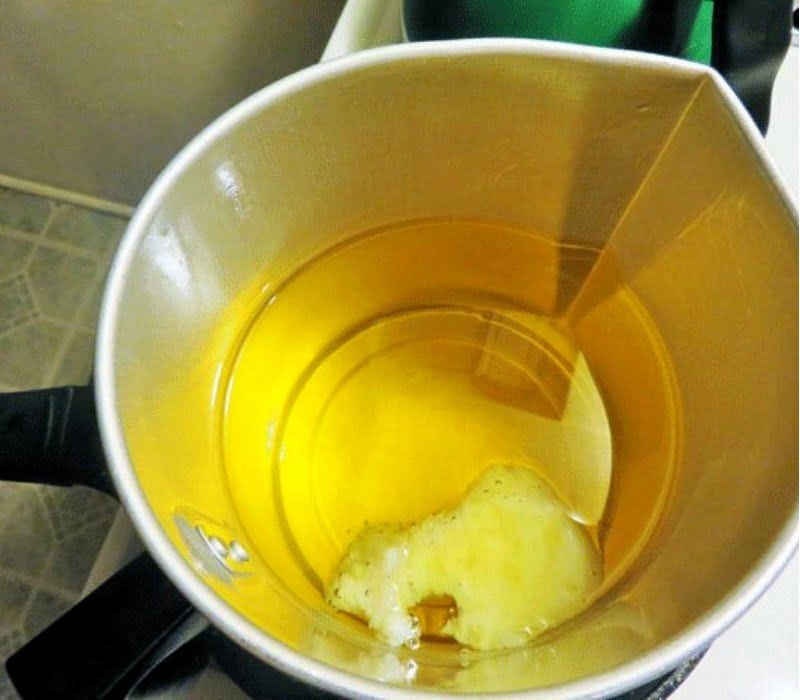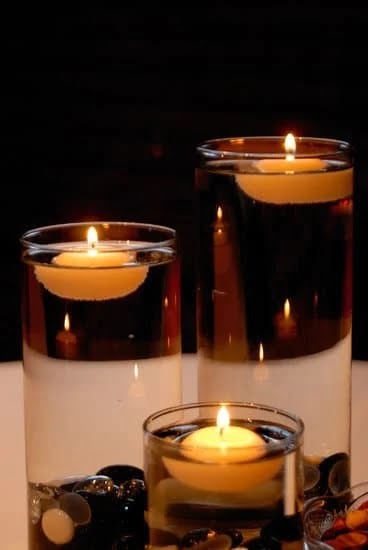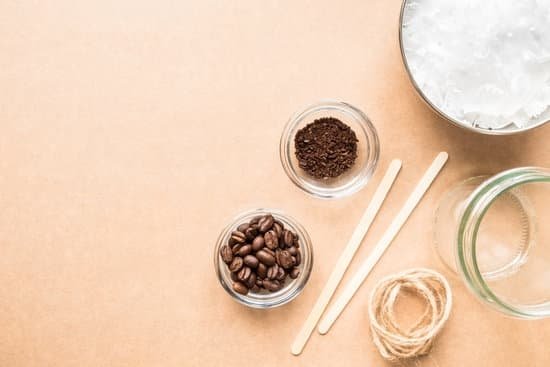Can you use any essential oils for candle making? Essential oils have become popular in candle making as they provide natural scents and therapeutic benefits. In this article, we will explore the different types of essential oils, factors to consider when choosing them, the best essential oils for candle making, proper incorporation techniques, safety precautions, and tips for enhancing scent throw in candles using essential oils.
Essential oils are highly concentrated plant extracts that capture the essence of a plant’s fragrance and beneficial properties. When used in candle making, they can add a delightful aroma to your candles and offer potential health benefits such as stress relief, relaxation, or even boosting concentration and energy. However, not all essential oils are suitable for candle making due to their unique characteristics and properties.
When selecting essential oils for candle making, it is important to consider factors such as the oil’s flash point (the temperature at which it ignites), its scent intensity and longevity, compatibility with different wax types, and any potential safety concerns when heated.
Different types of essential oils also vary in their top notes (initial impression), middle notes (body of the scent), and base notes (linger after top and middle notes have faded), which can affect the overall aroma of your candles.
Understanding the Different Types of Essential Oils
When it comes to using essential oils for candle making, it’s important to understand the different types of essential oils available. Each type of essential oil has unique characteristics and properties that can enhance the overall scent and benefits of your candles. Here are some of the main types of essential oils you can use for candle making:
- Citrus Oils – These oils, such as orange, lemon, and grapefruit, are known for their fresh and uplifting scents.
- Floral Oils – Floral essential oils like lavender, rose, and jasmine add a sweet and soothing aroma to candles.
- Woody Oils – Cedarwood, sandalwood, and pine essential oils bring a warm and grounding fragrance to candles.
- Herbal Oils – Essential oils from herbs like peppermint, eucalyptus, and rosemary offer a refreshing and invigorating scent profile.
Factors to Consider When Choosing Essential Oils for Candle Making
When selecting essential oils for candle making, there are several factors to consider. The purity and quality of the essential oil are crucial in determining the overall performance and scent throw of the candle.
It’s also important to consider the strength of the fragrance you desire, as some essential oils are more potent than others. Additionally, you’ll want to think about how the different types of essential oils complement each other when creating custom scent blends for your candles.
Tips for Enhancing Scent Throw in Candles Using Essential Oils
To maximize the scent throw of your candles when using essential oils, there are several tips you can follow. Choosing highly concentrated essential oils will provide a stronger aroma in your candles. Additionally, properly measuring and incorporating the right amount of essential oil into your candle wax is key to achieving a balanced and long-lasting fragrance. Experimenting with different combinations of essential oils can also help enhance the overall scent throw of your candles.
Factors to Consider When Choosing Essential Oils for Candle Making
When it comes to choosing essential oils for candle making, there are several factors to consider in order to ensure the best results.
Quality
The quality of the essential oils plays a crucial role in determining the overall scent and performance of the candles. It is important to source high-quality, pure essential oils from reputable suppliers.
Subpar or diluted oils
Scent Strength
Different essential oils have varying levels of scent strength. Some oils, such as lavender and peppermint, have strong, distinct scents, while others like citrus or floral scents tend to be more subtle. When choosing essential oils for candle making, consider the desired strength of the fragrance you want to achieve. It’s important to strike a balance and mix different scents accordingly to create a well-rounded aroma without overpowering or underwhelming the senses.
Compatibility With Wax
Not all essential oils are compatible with all types of wax. Certain waxes may not blend well with specific essential oils, affecting the overall performance and scent throw of the candles.
For example, soy wax tends to work well with a wide range of essential oils, while other waxes like paraffin or beeswax may have limitations. It’s important to research and test how different essential oils interact with the type of wax being used for candle making before proceeding with large-scale production.
Considering these factors will help ensure that you choose the right essential oils for your candles, resulting in high-quality products with captivating scents that appeal to customers.
Best Essential Oils for Candle Making
When it comes to choosing essential oils for candle making, it’s important to select the right ones that will not only create a pleasing aroma but also provide a long-lasting scent throw. While there are many essential oils available in the market, not all of them are suitable for candle making. The best essential oils for candle making are those that have a strong and lasting fragrance, as well as good compatibility with waxes.
To help you navigate through the wide array of options, here are some of the best essential oils that you can use for candle making:
1. Lavender Oil: Known for its calming and soothing properties, lavender oil is a popular choice for candle making. It blends well with most waxes and provides a refreshing and relaxing scent.
2. Eucalyptus Oil: Eucalyptus oil is great for creating candles that promote respiratory health and clear the air. Its fresh and invigorating scent can help create a revitalizing atmosphere in any space.
3. Citrus Oils (such as Lemon, Orange, or Grapefruit): Citrus essential oils are uplifting and energizing, making them perfect for creating candles that can brighten up any room. Their cheerful aroma can help elevate mood and create a refreshing ambiance.
4. Peppermint Oil: If you’re looking to make candles that promote alertness and focus, peppermint oil is an excellent choice. Its strong and minty scent can help stimulate the mind and increase concentration.
By carefully selecting the best essential oils for your candle making endeavors, you can ensure that your finished products will not only look beautiful but also emit delightful scents that will enhance any environment. Experimenting with different combinations of these essential oils can lead to unique and captivating fragrances in your candles.
How to Properly Incorporate Essential Oils Into Candle Making
When it comes to incorporating essential oils into candle making, there are a few important factors to consider. The first step is to choose the right essential oils for your candles.
Some essential oils have a lower flash point and may not work well in candles, so it’s crucial to select oils specifically designed for candle making. Additionally, you’ll want to consider the scent throw of the oils, as some are stronger than others and can impact the overall aroma of the candle.
Once you’ve chosen the essential oils for your candles, it’s important to properly incorporate them into the wax. One popular method is to add the essential oils during the cooling process of the wax.
This ensures that the fragrance is evenly distributed throughout the candle. Another method is called “scenting through,” where you pour a small amount of hot wax into a separate container, add the essential oils, and then pour this scented wax back into the larger batch.
It’s also important to note that different waxes may require different amounts of essential oil. For example, soy wax typically requires more essential oil than paraffin wax. Follow recommended guidelines or consult with a professional to ensure that you are adding an appropriate amount of essential oil to achieve your desired scent throw in your candles.
| Factors to Consider | Important Details |
|---|---|
| Choosing Essential Oils | Choose oils specifically made for candle making with good scent throw |
| Incorporating Essential Oils | Add oils during cooling process or use “scenting through” method |
| Different Wax Types | Different waxes may require different amounts of essential oil; soy wax needs more than paraffin wax |
Safety Precautions When Using Essential Oils for Candle Making
When using essential oils for candle making, it is important to take certain safety precautions to ensure a safe and enjoyable experience. Essential oils are highly concentrated and potent, and if not handled properly, they can pose potential risks. Here are some safety precautions to keep in mind when using essential oils for candle making.
Proper Dilution and Measurement
One of the most important safety precautions when using essential oils for candle making is to ensure proper dilution and measurement. Essential oils are extremely potent, so it is crucial to follow recommended guidelines for diluting them with a carrier oil before adding them to your candles. Using too much essential oil can result in an overpowering scent or even cause skin irritation or allergic reactions when the candle is burned.
Use Caution When Handling
Essential oils should be handled with care to avoid any accidents or mishaps. Always use gloves and protective eyewear when handling undiluted essential oils, as they can irritate the skin and eyes. Keep essential oils away from children and pets, and store them in a cool, dark place to preserve their potency.
Keep Proper Ventilation
When working with essential oils for candle making, it’s important to have proper ventilation in your workspace. Essential oils release strong aromas that can be overwhelming in an enclosed space. Ensure good airflow by opening windows or working in a well-ventilated area to minimize the risk of inhaling high concentrations of essential oil vapors.
By following these safety precautions when using essential oils for candle making, you can enjoy the creative process of crafting beautifully scented candles while ensuring a safe and enjoyable experience for yourself and others.
Tips for Enhancing Scent Throw in Candles Using Essential Oils
When it comes to enhancing the scent throw in candles using essential oils, there are several tips and techniques that can help you achieve the desired results. One important factor to consider is the type of essential oil you are using. Some oils have stronger scent profiles than others, so it’s important to choose oils with robust fragrances such as lavender, peppermint, or eucalyptus for a more potent scent throw.
In addition to choosing the right essential oils, the amount you use also plays a crucial role in enhancing the scent throw of your candles. While some oils are strong enough to be used on their own, others may need to be combined with other scents to achieve the desired fragrance intensity. It’s important to experiment with different oil combinations and concentrations to find the perfect balance for an optimal scent throw.
Furthermore, proper candle-making techniques can also impact the scent throw of your candles. Factors such as the type of wax used, wick size, and candle container can all influence how well the fragrance from essential oils disperses throughout a room. For example, soy wax tends to hold onto scents better than paraffin wax, while cotton wicks are known for their clean burn and excellent hot throw.
| Essential Oil Tips | Benefits |
|---|---|
| Choose essential oils with robust fragrances | Enhances the overall scent throw of your candles |
| Experiment with different oil combinations and concentrations | Allows customization of fragrance intensity |
| Select proper candle-making techniques and materials | Influences how well fragrance disperses throughout a room |
Conclusion
In conclusion, the world of essential oils offers endless possibilities for creating unique and customizable scents in candle making. Whether you prefer floral, herbal, or citrus notes, there is an essential oil to match your vision. It’s important to remember that not all essential oils are suitable for candle making due to their flashpoint and potency, but with proper knowledge and precautions, a wide range of essential oils can be safely used.
The versatility of essential oils allows for limitless creativity in crafting candles with distinct scents that cater to individual preferences. From calming lavender to invigorating peppermint, the options are abundant. Additionally, the ability to blend different essential oils together provides even more opportunities for creating signature fragrances that stand out.
Aspiring candle makers should keep in mind that proper research and understanding of each essential oil’s properties are crucial in order to achieve the desired results. With attention to safety precautions and adherence to best practices, utilizing essential oils can elevate the art of candle making by adding a personal touch and captivating aroma to the finished products.
The sheer variety and adaptability of essential oils enable enthusiasts to continually experiment and innovate in their craft, expanding the possibilities for unique and enchanting candles.
Frequently Asked Questions
Which Essential Oils Are Safe for Candle Making?
When it comes to making candles with essential oils, it’s important to use oils that are safe for burning. Some popular choices for candle making include lavender, citrus, peppermint, and eucalyptus essential oils. These oils not only provide a pleasant scent when burned, but they also have natural antibacterial and antiviral properties.
Can You Use Any Scented Oil for Candles?
While scented oils can be used for candle making, not all scented oils are suitable for this purpose. It’s important to use high-quality fragrance or essential oils specifically designed for candle making. These oils are specially formulated to withstand the heat of the wax and the burning process, ensuring a consistent and long-lasting scent.
Can I Use DoTerra Oils to Make Candles?
It is possible to use DoTerra oils to make candles, as long as they are labeled as pure therapeutic grade essential oils. However, it’s important to keep in mind that not all essential oils are safe for burning, so it’s crucial to research each oil before using it in candle making.
Additionally, some individuals may be sensitive or allergic to certain essential oils, so it’s always best to test a small amount before making a large batch of candles.

Welcome to my candle making blog! In this blog, I will be sharing my tips and tricks for making candles. I will also be sharing some of my favorite recipes.





